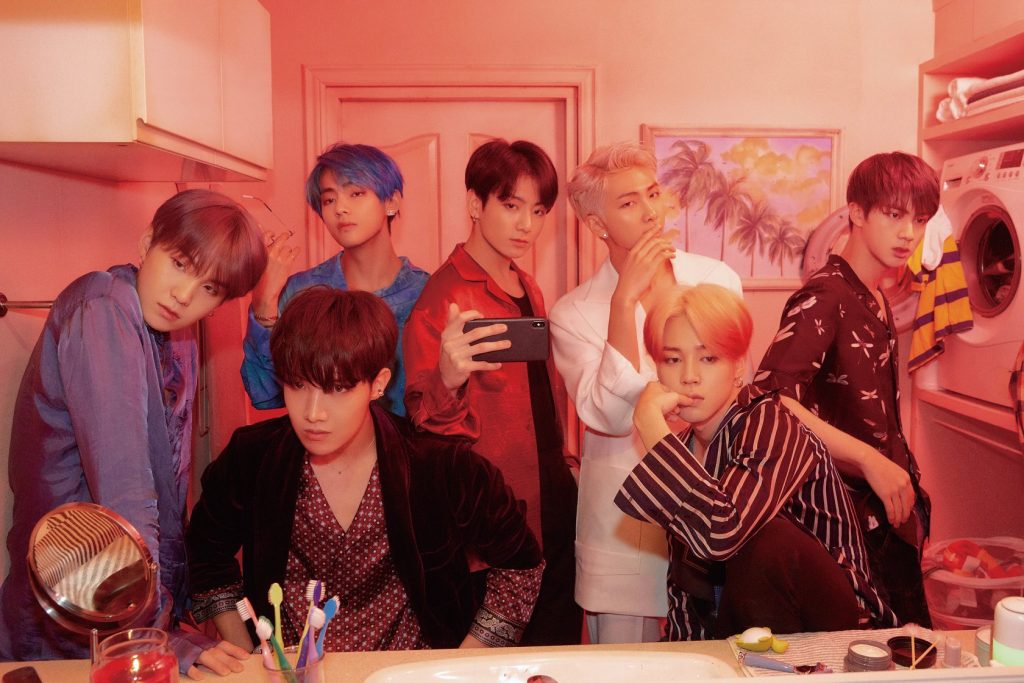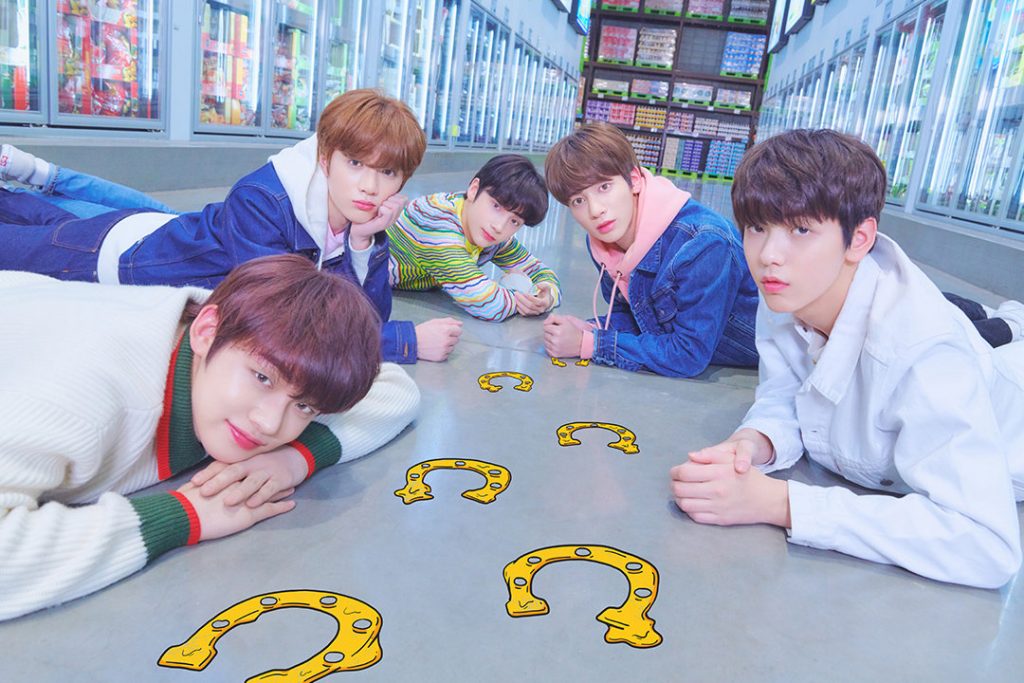
Once an underdog label, Big Hit Entertainment is now one of the most high-profile and profitable companies in K-pop. This is thanks almost entirely to BTS’ phenomenal global success. As Big Hit prepares for BTS’ imminent enlistment–eldest member Jin will enlist by the end of 2020 due to changes in the maximum enlistment age two years ago–the company is making big moves to build a bright future. But will these steps be enough for Big Hit to thrive and cement their place as a long-term K-pop power player, independent of their signature group?
The story of Big Hit began in 2005, when former JYP Entertainment composer Bang Si-hyuk founded the company. Its early years were tough, full of commercial disappointments and lost opportunities. A young K.Will called Big Hit home for a time, but decamped to Starship Entertainment prior to the release of his biggest hits. The company’s first girl group, GLAM, had a promising start in 2012. However, they were famously felled by one of Hallyu’s most bizarre scandals. Perhaps the brightest spot in Big Hit’s rookie years was its co-management of 2AM, which nevertheless was often more associated with its other managing company, JYP.
The company’s turning point would come in 2013, with the debut of BTS. Though hardly an immediate success, BTS would first slowly climb towards, then rapidly rocket to global stardom. The group’s meteoric rise turned Big Hit into a notable company almost overnight. While this success was obviously welcome, it also came with a distinct downside, as Big Hit’s fiscal health and industry reputation became tied to a single group. That is a regrettably tenuous set-up for a company, made even more so by BTS’ identity as a boy group, and thus their inevitable military hiatus.

As that hiatus draws precipitously near, Big Hit is at a crucial crossroads. It can find ways to diversify its appeal, creating an identity and cultivating sources of income and notoriety beyond BTS. Or, it can crumble, failing to gain traction outside of the group that built it into the company it is today.
This is not an unprecedented situation in K-pop. Looking back to the dawn of the second generation, rivals SM Entertainment and DSP Media faced similar conundrums. Both had risen to fame due to one or two groups. For SM, it was H.O.T and to a lesser extent, S.E.S. With DSP, it was Sechskies and Fin.KL. Around the early 2000’s, all four groups disbanded or went on indefinite hiatus. Faced with the abrupt loss of their most popular artists, both SM and DSP were forced to quickly reinvent themselves.
SM, of course, would accomplish this task in extraordinary fashion, becoming one of K-pop’s most recognizable and influential companies. It did this by building a formidable roster of artists, ensuring that it would never again be dependent on just one group or soloist. Alas, DSP did not fare as well, struggling to find its footing after losing Sechkies and Fin.KL. It did experience a brief renaissance in the mid-2000s, due to the groups SS501 and Kara. However, DSP has never managed to maintain a consistent troupe of successful acts for longer than a few years. Consequently, it has never matched, much less surpassed, its early glory days.
The contrasting trajectories of former rivals SM and DSP provide a clear picture of two futures that could await Big Hit. Their examples also highlight Big Hit’s most pressing need as it enters a new, non-BTS dominated era: more artists.

For six whole years following the debut of BTS, Big Hit did not introduce any new artists. Last year, it finally debuted the quintet TXT (Tomorrow x Together). Fortunately, TXT has seen quick and impressive success. Less promisingly, TXT has faced constant and often unflattering comparisons to BTS, with some fans disappointed by the rookie group’s comparative lack of rawness or originality. Unfortunately, inescapable comparison to BTS seems like a fate awaiting most of Big Hit’s acts. One can only hope that these assessments don’t hinder young Big Hit groups’ chance to shine, or to develop unique identities of their own.
It won’t be long until we find out, as Big Hit seems to intend to make up for lost time when it comes to debuts. At a company briefing session earlier this year, executives detailed plans to debut three new groups, one in each of the next three years. 2020 should see a multinational boy group, 2021 Big Hit’s long-awaited first girl group since GLAM, and 2022 another new boy group. Even more groups seem to be on the horizon as well, since the company is continuing to hold regular global auditions. While these prospective acts are exciting, the company should be cautious that it does not cut corners in its rush to introduce new artists.
Even assuming the best results from Big Hit’s debut plans, they don’t address the immediate issue of what will sustain the company when BTS begins enlisting within the year. TXT, despite their auspicious start, are still far too early in their career to single-handedly support a company. So, what to do? In response to this quandary, Big Hit has come up with an innovative strategy. If Big Hit doesn’t have the artists to sustain itself, it will simply purchase other companies that do.

In the summer of 2019, the company acquired Source Music, GFriend‘s label. Then, in the first half of 2020, Big Hit became the largest shareholder of Pledis Entertainment, home to NU’EST and Seventeen. In a flash, Big Hit suddenly had a roster of established and beloved artists. What’s more, Big Hit has indicated that it intends to leave much of these acquired companies’ administrative and creative structures in place. This would allow the companies to operate semi-independently, with Big Hit as something of an overseer and collaborator. If Big Hit sticks to this plan of management, it could build a truly unique multi-label company model, perhaps creating a blueprint for future companies. (SM acquired Woollim Entertainment in a similar move in 2013, but the companies separated three years later, with SM remaining only as a shareholder.) It remains to be seen how this configuration will play out in certain real-world situations, but Big Hit’s 2021 girl group, which is being created in partnership with Source Music, may shed some light on the matter.
Company acquisitions are not the only way Big Hit is demonstrating its willingness to experiment. The company is also branching out into previously unexplored arenas.
In 2019, Big Hit launched Weverse, something of an all-purpose digital fan café, merchandise store, and social media platform. Besides providing an online space for fans to engage with each other, Weverse offers exclusive content from participating artists, which include all groups signed under Big Hit, Source Music, and Pledis. The app has been particularly praised for its built-in translation service, which makes its content extremely accessible to international fans.
Weverse feels like a smart move from Big Hit, giving it a foothold in the always booming tech and social media industries. It also makes Big Hit less dependent on external tech platforms, since it now has a functioning service of its own.

Another new medium the company is exploring is television. Big Hit recently stepped into the always fraught waters of survival shows, with the premiere of the Bang Si-hyuk-helmed I-Land. The Mnet show, created in collaboration with CJ E&M, will generate the 2020 multinational boy group previously mentioned. I-Land is undeniably engaging, but also downright cruel, with contestants being forced to vote each other in or out of the competition. You can practically hear the show’s designers, Bang among them, evil chuckling in the background of certain scenes.
The large amount of buzz generated by I-Land, much of it negative, points to one of Big Hit’s long-term challenges. While never immune from criticism, Big Hit was able to escape some early heat due to its underdog status and frankly, a certain lack of interest in the company and its activities. Now, all eyes are on them and as an acknowledged heavy hitter, Big Hit will receive no such lenience. Going forward, maintaining a positive image will be difficult, and any mistakes made by the company or its artists will be excoriated in the way only netizens and impassioned K-pop fans are truly capable of.
Another television-related venture of Big Hit’s is an upcoming drama based on BTS’ “Bangtan Universe”, a fictional world often referenced in the group’s MVs. Creating a drama inspired by an idol group’s work is an unprecedented venture, and it will be exciting to see what the results look like. If the show is successful, it feels quite possible that TXT and their fictional universe could eventually get the drama treatment.
Besides all of these creative endeavors, Big Hit has commenced plans to go public, a hugely significant business milestone. Previous K-pop companies that have gone public are small in number, and include SM, JYP, YG Entertainment, FNC Entertainment, and Cube Entertainment.

Big Hit has a lot on its plate, maybe even too much. As admirable as the company’s ambition is, it risks overstretching itself through the speed and multitude of projects it is taking on. One way it is trying to manage this is through the acquisition and creation of subsidiaries, like Source Music and Pledis, but also gaming company Superb and BeNX, an app-focused subsidiary responsible for Weverse.
Even with these measures, Big Hit’s multi-pronged approach to success is a high-risk, high-reward endeavor. If a majority of its current undertakings go to plan, they could yield an embarrassment of riches. Big Hit would undeniably establish itself as a company that is capable of success beyond BTS. Additionally, due to the uniqueness of many of its ventures, Big Hit would open doors not just for itself, but also for other entities in the K-pop industry. However, if many of the company’s forays into artistic cultivation and business expansion do not have happy endings, this could result in a situation where Big Hit is inundated by humiliating failures, leaving its future painfully uncertain.
The next few years should conclusively determine whether Big Hit’s enduring role in the K-pop industry will be as a formidable power player, or a cautionary tale of one-hit-wonderdom. Regardless of the outcome, it is sure to be a fascinating journey to witness.
(Billboard, Elite Daily, Forbes[1][2], Kpop Herald, Naver. Images via Big Hit Entertainment, CJ E&M, Mnet, Pledis Entertainment.)


